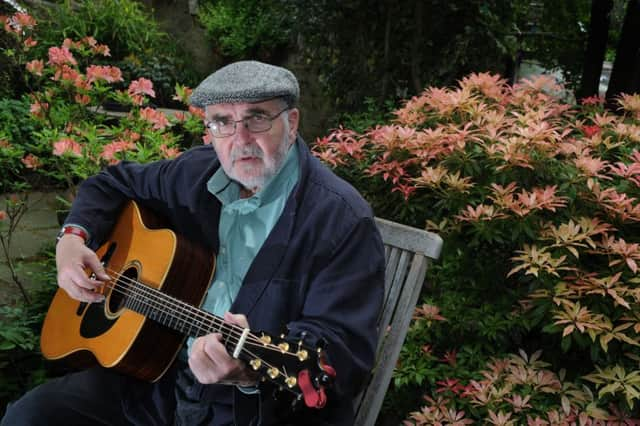Roy Bailey, folk singer


A musician who played alongside Paul Simon, Pete Seeger, Billy Bragg and Tom Paxton on the international circuit, he was also a professor of social studies and the recipient of an MBE, which he returned.
He performed his final concert in his adopted city only a few weeks ago, after decades using his music to explore poverty, war and inequality.
Advertisement
Hide AdAdvertisement
Hide AdHis son-in-law, Martin Simpson, said he had never ceased to be a protest singer.
But in an interview a few years earlier, Bailey said he was not trying to spread a message.
“I’m just telling people in my songs that these are the things that make me laugh, cry and make me angry,” he said.
“If people see me as a political singer that’s up to them. A lot of other singers share my world views, it’s just that I express mine through my music and they don’t.
Advertisement
Hide AdAdvertisement
Hide Ad“My songs are a comment about the world rather than a rallying cry for revolution.”
Born in London, he had begun singing in 1958, in a skiffle band in the student bars of the south coast, when the success of Lonnie Donegan made them fashionable. Later he joined the Three City Four, a folk ensemble that featured Leon Rosselson as a replacement for the influential guitarist Martin Carthy. Bailey released a first solo album in 1971 and went on to record around 20 more, eventually on his own Fuse label.
In 1998, he played a concert at the Royal Albert Hall.
His association with Mr Benn had begun in 1976 and they performed as an unlikely folk duo, playing to 300 people in working men’s clubs and to 9,000 at the Cambridge Folk Festival in 2000. Their performance there was released as an album called The Writing on the Wall, and they went on to be named best live act at the BBC Radio 2 Folk Awards.
In his academic life he lectured in Britain, Germany, Belgium, the USA, Canada and Australia. In retirement, he became emeritus professor at Sheffield Hallam University and in 1989 was elected a Fellow of the Royal Society of Arts.
Advertisement
Hide AdAdvertisement
Hide AdHis MBE, for services to folk music, came in 2000, and was returned six years later, in protest against British support for the Israeli invasion of Lebanon.
He is survived by his wife, Val, children Kit and David, and a brother, Ron.